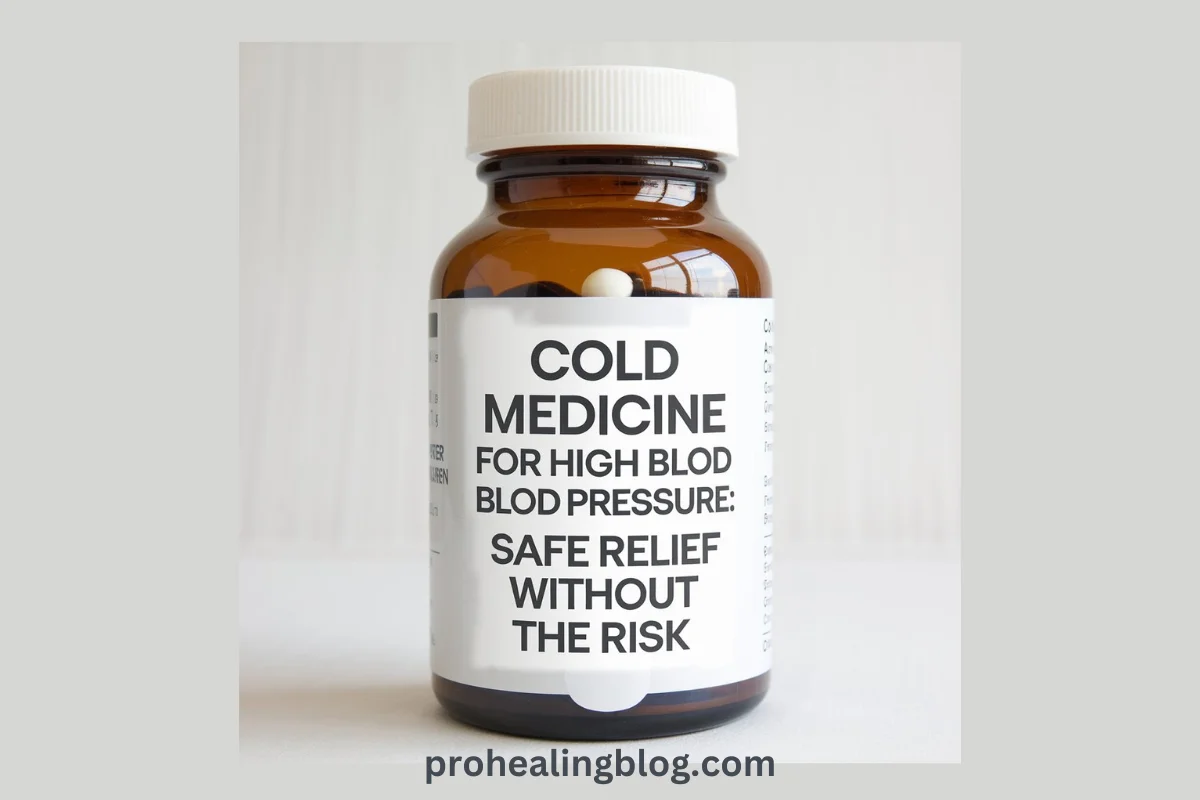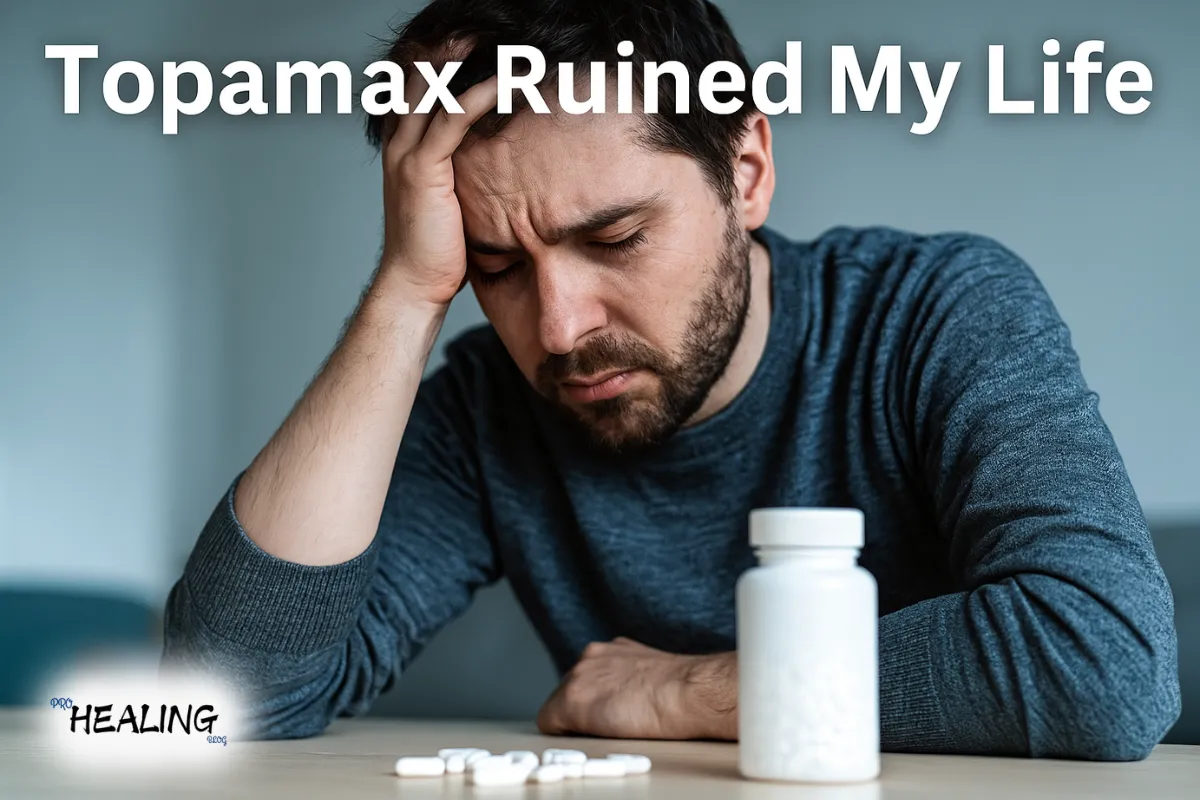You’re sniffling, sneezing, and feeling downright miserable. But if you have high blood pressure, reaching for the wrong cold medicine could make things worse—not better. Did you know that nearly half of all adults in the U.S. have high blood pressure, and many common cold medications can dangerously spike those numbers?
It’s a frustrating catch-22: you need relief from your cold, but you also need to protect your heart. The good news? There are safe, effective options out there. In this guide, we’ll break down everything you need to know about choosing cold medicine for high blood pressure, from what to look for on the label to natural remedies that can help.
Let’s get you feeling better—safely.
See Also: Cold Medicine for High Blood Pressure: Safe Relief Without the Risk
Cold Medicine for High Blood Pressure: Risks Considerations
Many over-the-counter (OTC) cold medicines contain ingredients that can raise blood pressure or interfere with hypertension medications. The main culprits include:
- Decongestants: Ingredients like pseudoephedrine and phenylephrine constrict blood vessels, which can increase blood pressure.
- NSAIDs: Nonsteroidal anti-inflammatory drugs (e.g., ibuprofen) can cause fluid retention, raising blood pressure over time.
- High Sodium Content: Some cold medicines, especially effervescent tablets, contain high levels of sodium.
Safe Cold Medicine Options for High Blood Pressure
If you have high blood pressure, look for cold medicines labeled “safe for hypertension” or “decongestant-free.” Here are some options:
1. Antihistamines
- Examples: Loratadine (Claritin), cetirizine (Zyrtec)
- Why They’re Safe: Antihistamines relieve sneezing and runny noses without affecting blood pressure.
2. Cough Suppressants
- Examples: Dextromethorphan (Robitussin)
- Why They’re Safe: These target coughs without impacting your cardiovascular system.
3. Expectorants
- Examples: Guaifenesin (Mucinex)
- Why They’re Safe: They thin mucus, making it easier to cough up, without raising blood pressure.
Ingredients to Avoid if You Have High Blood Pressure
When shopping for cold medicine, steer clear of these ingredients:
- Pseudoephedrine: A powerful decongestant that can spike blood pressure.
- Phenylephrine: Another decongestant that may raise blood pressure, though less effectively than pseudoephedrine.
- NSAIDs: Avoid ibuprofen and naproxen if possible; opt for acetaminophen (Tylenol) instead.
See Also: Marjoram Health Benefits: Uses in Medicine & Homeopathy
Natural Remedies for Cold Relief
If you’re wary of OTC medications, try these natural remedies to ease cold symptoms:
- Saltwater Gargle: Soothes a sore throat and reduces mucus.
- Steam Inhalation: Relieves nasal congestion without medication.
- Honey and Lemon: A natural cough suppressant and throat soother.
- Hydration: Drink plenty of water, herbal teas, or broths to thin mucus and stay hydrated.
How to Read Cold Medicine Labels
Not sure what’s in your cold medicine? Here’s how to decode the label:
- Active Ingredients: Look for antihistamines, dextromethorphan, or guaifenesin. Avoid decongestants.
- Inactive Ingredients: Check for sodium content, especially in effervescent tablets.
- Warnings: Look for phrases like “not recommended for high blood pressure” or “consult a doctor if you have hypertension.”
When to See a Doctor
While most colds can be managed at home, consult a healthcare provider if:
- Symptoms last more than 10 days.
- You experience severe chest pain or shortness of breath.
- Your blood pressure spikes or becomes difficult to control.
Tips for Managing Colds with High Blood Pressure
- Monitor Your Blood Pressure: Keep track of your readings, especially when taking new medications.
- Stay Hydrated: Proper hydration helps thin mucus and supports overall health.
- Rest: Give your body the time it needs to heal.
- Use a Humidifier: Adds moisture to the air, easing congestion and coughing.
Final Thoughts on Cold Medicine for High Blood Pressure
Dealing with a cold is never fun, but it’s especially challenging when you have high blood pressure. The key is to choose medications and remedies that won’t compromise your cardiovascular health. By avoiding harmful ingredients and opting for safer alternatives, you can find relief without the risk.
Remember, your health is worth the extra effort. If you found this guide helpful, share it with others who might benefit. Together, we can navigate cold season safely and smartly.
See Also: Marjoram Health Benefits: Uses in Medicine & Homeopathy






